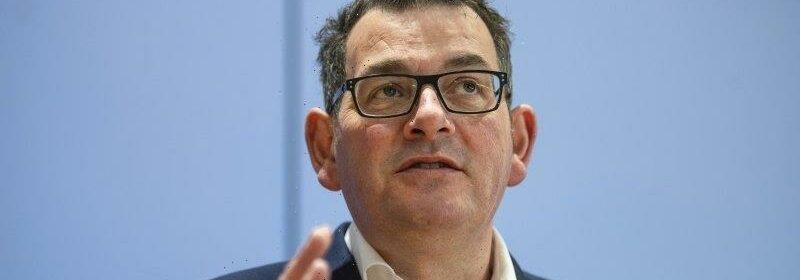Is Victoria’s anti-corruption regime up to the task?

I spent quite a few hours of this week in unfamiliar surroundings. Not since I was a reporter have I been required to dig a necktie out of my wardrobe and find my way through the labyrinthine interior of the Supreme Court building in William Street.
But on Thursday I found myself in Court 9 listening to arguments about whether The Age would be permitted, or not, to publish a major story with direct relevance to the forthcoming state election.
Daniel Andrews has been questioned by IBAC no fewer than four times.Credit:Paul Jeffers
I am still restricted in what I can say by a temporary injunction issued against us today. We were first injuncted in an emergency, after-hours session on Wednesday after we had sent questions to a number of parties involved in the case. We spent the next two days unsuccessfully fighting that.
All I can say is that we have been prevented from publishing any information we might have that was “contained in a proposed report, or a draft or part of a proposed report” issued by Victoria’s Independent Broad-based Anti-corruption Commission (IBAC). To do so, in the words of the court, may “constitute a breach of confidence”.
As I’ve related before, Victoria was slow and tentative to legislate an anti-corruption commission. The Bracks government police minister Andre Haermeyer worried in 2004 that IBAC would allow clever barristers to get criminals out of prosecution, and in 2012, after the Baillieu government had enacted it, the then premier’s chief of staff Tony Nutt boasted that he had constrained its operations because he did not want a “cowboy, Stasi, bizarre, no judgment, just-fit-people-up” organisation.
The result of this reluctance was a regime that started off weak to the point of uselessness. Until 2015, when the new Andrews government beefed it up, the law required IBAC to find prima facie evidence of a criminal offence before it could start an investigation.
“Victorians,” said former judge Stephen Charles at the time, “might not realise our state has the worst and least effective government integrity system in Australia.”
Well, IBAC has proved since then it has teeth: it has uncovered wrongdoing in the heart of the Labor Party, investigated rottenness in the planning system in some outer suburbs, and is investigating the relationship between the government and a key union, the United Firefighters’ Union.
However, the residue of that initial weakness remains, particularly in its reluctance to hold public hearings.
When federal Attorney-General, Mark Dreyfus (a Victorian) proposed his new national anti-corruption commission, he adopted the Victorian approach that public hearings be held only in “exceptional circumstances”. The Victorian provision makes the national body, the NACC, significantly more restrictive than anti-corruption commissions in other states such as NSW, which feels free to put its premiers in front of a public tribunal and test them under oath.
In Victoria, as reporter Paul Sakkal revealed today, Daniel Andrews has been questioned by IBAC no fewer than four times. The investigation covered in Sakkal’s story was the first to closely query Andrews’ own actions, and all of it was done behind closed doors. We do not know exactly when the grilling took place, but the events that led to it happened four years ago, on the eve of the last election. And it’s only because of Sakkal’s excellent journalism that the Victorian public knows about it – just as Andrews is seeking yet another four years in office.
Another problem with the Victorian commission is that it gives people adversely named in draft reports an ample and secret opportunity to comment on the initial findings. It’s illegal for them to make any public comment on the report during that period but they are allowed to challenge the draft findings in the courts.
Just such a thing has happened to the draft findings in Operation Sandon, which inquired into allegedly corrupt property development in the Casey council area. It’s all tied up in court appeals, and meanwhile we simply cannot report what IBAC would like to find.
Don’t forget that during the Sandon hearings, a previously undisclosed $8500 fundraising dinner with Daniel Andrews was revealed, and the developer, John Woodman’s offsider told IBAC that Andrews was, among some of his other senior ministers, “more friendly than others”.
It raised the question of whether there was any link between allegedly corrupt property development decisions and the premier of this state. These things may be directly relevant – in fact, crucial – to your decision on how to vote at the state election on November 26. But IBAC’s processes and the Victorian legislation mean you are not allowed to know, and will not know in time.
Add this to our seriously sclerotic FOI system, the reluctance of Victoria’s ministers to subject themselves to proper (as opposed to staged) scrutiny, and a public service that is increasingly dominated by political departments and ministerial staffers, it is little wonder that ordinary voters, unprompted, raise integrity as a key issue at this election.
This is not an attack on Andrews: Liberal leader Matthew Guy has shown a poor instinct for integrity in decision making, both as a minister and an opposition leader. If he were to win the election, the need for a robust integrity framework would be as pressing.
I’m also not saying we’re badly governed in Victoria. But the guards against administrative excess must be strong, well funded, independent and transparent, and I’m simply not convinced we have the settings right in this state.
Michael Bachelard sends a newsletter to subscribers each week. Sign up to receive his Note from the Editor.
Most Viewed in Politics
From our partners
Source: Read Full Article
